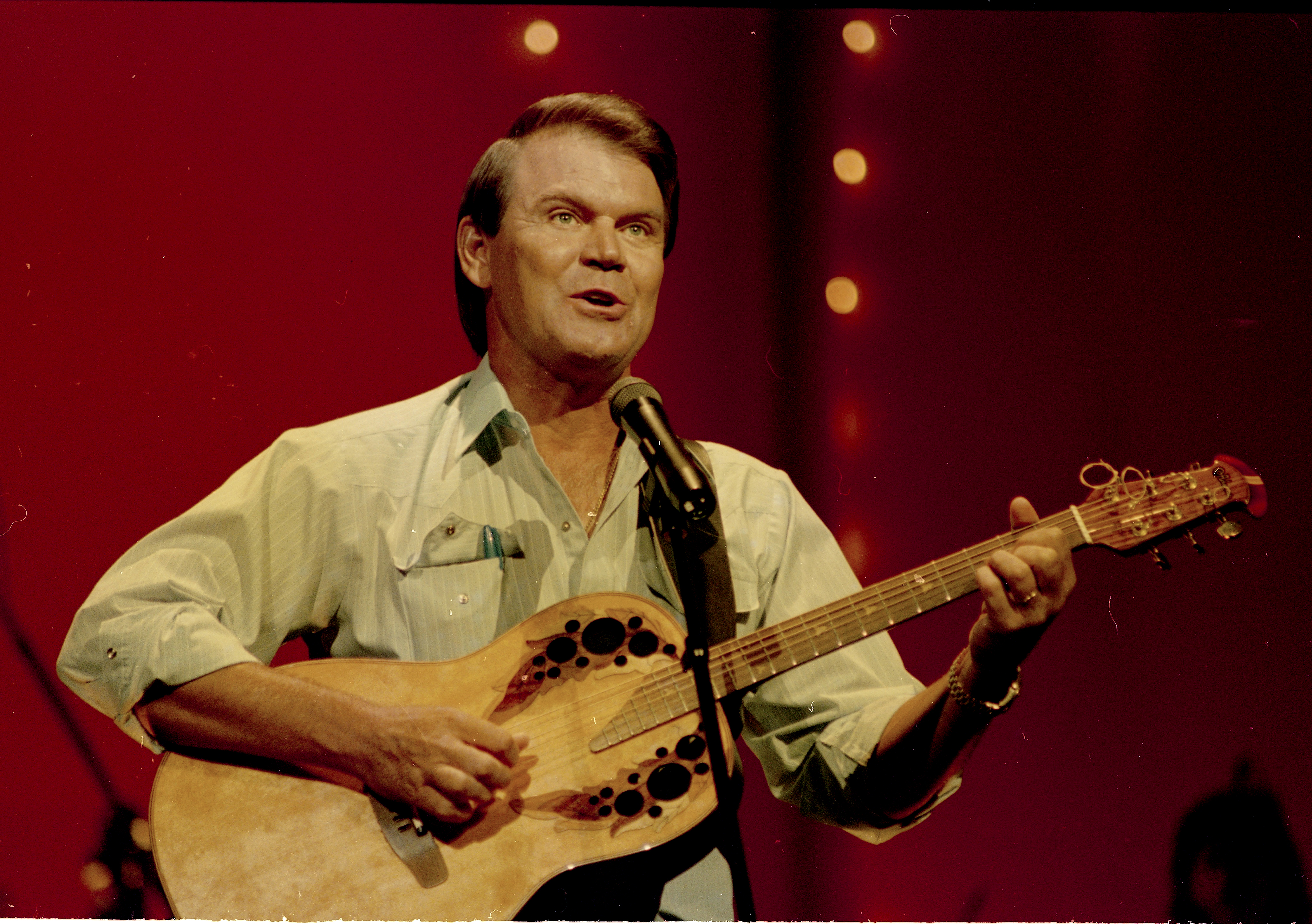Campbell, Glen (1936-2017), was an influential American country music singer and guitarist. He recorded a string of songs in the 1960’s and 1970’s that became crossover pop hits. Campbell won many awards for his music, including a Grammy Lifetime Achievement Award in 2012.

Glen Travis Campbell was born into a farming family on April 22, 1936, in Delight, Arkansas. Many of his relatives were musicians, and Campbell took an early interest in music. Campbell began playing guitar at age 4 and performing in public at age 6. He occasionally performed on local radio stations as a child. Campbell’s family left Arkansas and eventually settled in Albuquerque, New Mexico, where he performed at local nightclubs as a teenager. By the time Campbell turned 20, he had joined a local band led by his uncle Dick Bills. In 1958, Campbell formed his own band, Glen Campbell and the Western Wranglers. In 1960, Campbell disbanded the group and moved to Los Angeles, California, where he became a highly sought-after studio guitarist.
Campbell’s first solo recording, “Turn Around, Look at Me,” released in 1961, was a moderate success. He gained more notice with his second recording, “Too Late to Worry, Too Blue to Cry” (1963). In 1965, Campbell released a version of “Universal Soldier” by the Canadian singer-songwriter Buffy Sainte-Marie that became his biggest hit up to that time. A series of unsuccessful recordings followed, but Campbell’s reputation as a session musician continued to grow. He became associated with a talented group of Los Angeles studio musicians known as the Wrecking Crew. With and without that group, Campbell played guitar on sessions with such performers as Nat King Cole, Judy Garland, Dean Martin, Elvis Presley, Frank Sinatra, the Mamas and the Papas, and the Monkees; and with the influential producer Phil Spector. From 1964 through 1965, Campbell toured with the Beach Boys, playing bass guitar and singing harmonies as a temporary replacement for group member Brian Wilson. Campbell also played guitar on the group’s important album Pet Sounds (1966), as well as on other recordings by the group.
In 1967, Campbell’s popularity as a solo performer soared with the release of the song, “Gentle on My Mind.” Campbell released a string of hits over the next 10 years, including “By the Time I Get to Phoenix” (1967), “Wichita Lineman” (1968), “Galveston” (1969), “Honey, Come Back” (1970), “Rhinestone Cowboy” (1975), and “Southern Nights” (1977).
Campbell’s popularity led to the television variety show “The Glen Campbell Goodtime Hour,” which he hosted from 1969 to 1972. Campbell also acted in motion pictures. His most notable role was as the Texas Ranger La Boeuf in the Western True Grit (1969). Campbell also performed the film’s title song.
Campbell was inducted into the Country Music Hall of Fame in 2005. In 2011, he released the album Ghost on the Canvas. It became a top-10 country album. Shortly after the album’s release, Campbell announced that he had been diagnosed with Alzheimer’s disease, the most common cause of dementia late in life. Dementia is characterized by loss of the ability to think clearly. Campbell embarked on a final “Goodbye Tour” before retiring from performing in 2012. His album See You There, recorded around the same time as Ghost on the Canvas, was released in 2013. Campbell died on Aug. 8, 2017.
